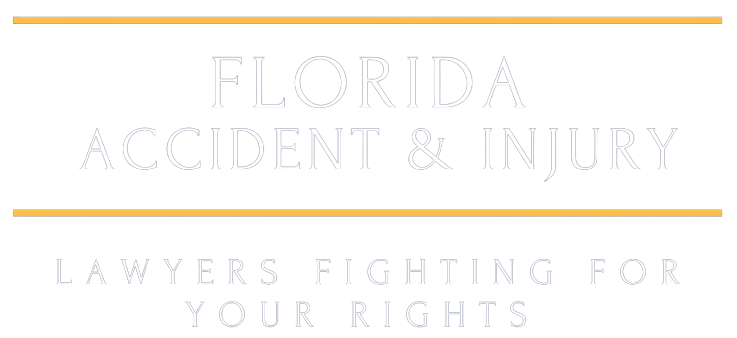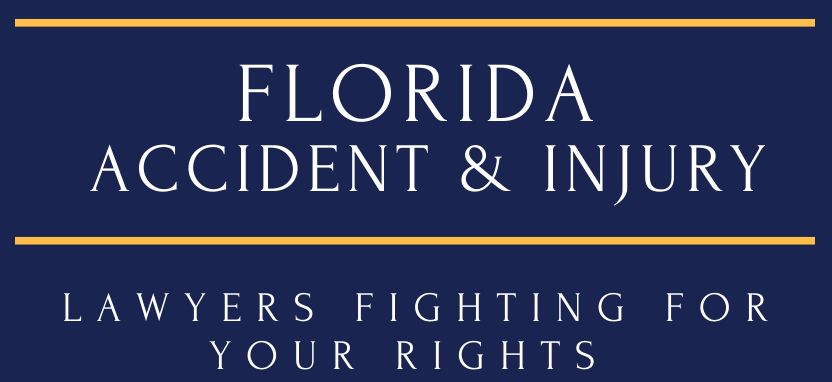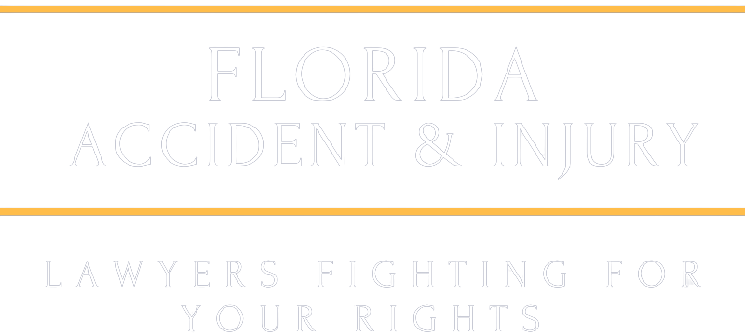
Industries with the Most On-the-Job Accidents and Injuries in Florida
When you’re injured on the job in Florida, you must seek legal representation to protect your rights and ensure you receive fair compensation. Florida Accident Injury Attorneys specialize in representing clients injured in on-the-job accidents, particularly in industries with high rates of accidents and injuries. Our experienced attorneys have a proven track record of successfully advocating for our clients and helping them to recover the compensation they deserve. Here, you can learn about Florida industries with the most workers’ compensation claims and why they are so dangerous. Dangerous Industries for Workers in Florida While all jobs carry some risk for workers to sustain an injury, some are more dangerous than others. Construction In the construction industry, accidents can occur in various ways, including falls from heights, being struck by falling objects, electrocution, and accidents involving heavy machinery. Consider these statistics: According to the Bureau of Labor Statistics, there were 76 work-related fatalities in the construction industry in 2021. The most common causes of fatal construction accidents in Florida in 2021 were falls, transportation incidents, contact with objects and equipment, and electrocutions. Construction workers are more likely to be injured or killed on the job than workers in many other industries. Construction is one of the most dangerous industries in the United States. To protect workers in this industry, laws and regulations govern safety standards and provide for workers’ compensation benefits. Specifically, OSHA has established safety regulations that apply to the construction industry, including fall protection, scaffolding, and electrical safety requirements. Additionally, Florida has workers’ compensation laws that require employers to provide benefits to injured employees, such as payment of medical expenses and lost wages. Property owners or contractors may also be liable for construction accidents if they fail to maintain a safe worksite or provide adequate safety equipment. Healthcare The healthcare industry can be extremely dangerous, and several injuries are seen in these work settings. Some of the most common include the following: Musculoskeletal injuries: Healthcare workers often need to lift or move patients, which can result in strains, sprains, and other musculoskeletal injuries. Needlestick injuries: Healthcare workers who handle needles and other sharp objects may be at risk for needlestick injuries, which can transmit bloodborne diseases such as HIV and hepatitis B and C. Slip, trip, and fall injuries: Healthcare facilities may have hazards such as wet floors or cluttered walkways that can cause slip, trip, and fall injuries. Violence-related injuries: Healthcare workers may be at risk for violence from patients or their families, particularly in emergency departments or psychiatric units. Respiratory illnesses: Healthcare workers may be exposed to infectious diseases such as tuberculosis or COVID-19, which can cause respiratory illnesses. These injuries can be serious and may require medical treatment and time off work to recover. There are laws in place to protect those working in the healthcare industry. Some of these laws and requirements include the following: OSHA regulations: The Occupational Safety and Health Administration (OSHA) has established regulations that apply to the healthcare industry, including standards related to bloodborne pathogens, respiratory protection, and workplace violence prevention. Workers’ compensation: Florida’s workers’ compensation laws provide benefits for healthcare workers who are injured on the job, including payment of medical expenses, lost wages, and disability benefits. Workplace violence prevention: Florida has a workplace violence prevention law that requires healthcare facilities to develop and implement violence prevention programs that include risk assessments, employee training, and incident reporting. Personal protective equipment: Healthcare workers must use personal protective equipment (PPE) such as gloves, masks, and gowns to protect themselves from exposure to infectious diseases and other workplace hazards. It’s important for healthcare workers to be aware of their rights under these laws and to take steps to protect themselves on the job. If you believe that your employer has violated any of these workplace protection laws, it’s important to consult with an attorney who specializes in employment law to explore your legal options. Manufacturing The manufacturing industry also sees many fatal and non-fatal workplace accidents each year. Common injuries manufacturing industry workers sustain include the following: Overexertion injuries: Workers in the manufacturing industry may be required to lift heavy objects or perform repetitive motions for long periods, which can lead to strains, sprains, and other overexertion injuries. Machine-related injuries: Manufacturing workers may operate heavy machineries such as conveyor belts, presses, and lathes, which can cause serious injuries such as amputations, burns, and crush injuries. Slip, trip, and fall injuries: Manufacturing facilities may have hazards such as wet floors or cluttered walkways that can cause slip, trip, and fall injuries. Exposure to chemicals and toxins: Workers in the manufacturing industry may be exposed to hazardous chemicals and toxins, which can cause respiratory problems, skin irritation, and other health issues. Noise-induced hearing loss: Manufacturing workers may be exposed to high noise levels from machinery and equipment, which can cause hearing loss over time. Due to the dangers in this industry, laws and regulations are in place to help keep workers safe. These include: OSHA regulations: The Occupational Safety and Health Administration (OSHA) has established safety regulations that apply to the manufacturing industry, including standards related to machine guarding, lockout/tagout procedures, and hazardous chemicals. Workers’ compensation: Florida’s workers’ compensation laws provide benefits for manufacturing workers who are injured on the job, including payment of medical expenses, lost wages, and disability benefits. Product liability laws: In some cases, manufacturers may be held liable for injuries caused by defective products or machinery. Personal protective equipment: Manufacturing workers must use personal protective equipment (PPE) such as hard hats, safety glasses, and hearing protection to prevent injuries from machinery and other hazards. Let Our Legal Team at Florida Accident Injury Attorneys Help with Your Case If you’ve been injured on the job in Florida, the experienced attorneys at Florida Accident Injury Attorneys can help you navigate the legal process and ensure that you receive the compensation you deserve. With specialties in the construction, healthcare, and manufacturing industries, our legal team understands the specific laws and regulations that apply



